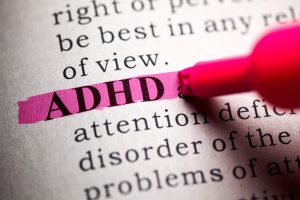
Symptoms of ADHD
ADHD is characterized by two main sets of symptoms: inattention and hyperactivity-impulsivity. These symptoms can manifest differently in children and adults.
Inattention Symptoms
Inattention symptoms include difficulty focusing, being easily distracted, and forgetfulness. Children may exhibit the following behaviors:
-
Often fails to pay attention to details and makes careless mistakes.
-
Struggles to sustain attention on tasks or activities.
-
Seems not to listen when spoken to directly.
-
Fails to follow through on instructions and tasks.
-
Struggles with organization and task management.
-
Avoids or dislikes activities that require sustained mental effort.
-
Frequently loses or misplaces belongings.
-
Easily distracted by external stimuli.
-
Forgetful in daily activities.
Adults with ADHD may experience similar symptoms, such as difficulty focusing on work or conversations, forgetfulness, and disorganization.
Hyperactivity and Impulsivity Symptoms
Hyperactivity and impulsivity symptoms include restlessness, excessive talking, and impulsive behaviors. Common symptoms in children include:
-
Fidgeting or squirming in seat.
-
Frequently leaving their seat in situations where staying seated is expected.
-
Running or climbing excessively.
-
Difficulty engaging in activities quietly.
-
Constantly feeling “on the go” or having a sense of restlessness.
-
Excessive talking.
-
Interrupting or intruding on others’ conversations or activities.
In adults, hyperactivity may present as inner restlessness and difficulty staying still or engaging in quiet activities.
Seeking a Diagnosis
If you suspect that you or your child may have ADHD, it is essential to consult a healthcare professional for a proper diagnosis. While there is no single test for ADHD, healthcare providers follow specific guidelines to determine if the symptoms align with the disorder.
Initial Evaluation
The first step in the diagnostic process is to discuss your concerns with a healthcare provider. They will ask about the symptoms, their duration, and their impact on daily life. It is crucial to provide a thorough history of the symptoms and any relevant family history of ADHD.
Comprehensive Assessment
To make an accurate diagnosis, the healthcare provider will conduct a comprehensive assessment. This assessment may include:
-
Gathering information from multiple sources, such as parents, teachers, and other caregivers.
-
Assessing the presence of symptoms in different settings, such as home, school, or work.
-
Ruling out other conditions that may mimic ADHD symptoms.
-
Conducting a physical examination to rule out any underlying medical conditions.
Referral to Specialists
In some cases, healthcare providers may refer individuals to specialists for a more in-depth evaluation. Specialists who may be involved in the diagnostic process include psychologists, psychiatrists, and pediatricians with expertise in ADHD.
Diagnosing ADHD in Children and Teenagers
Diagnosing ADHD in children and teenagers involves following specific criteria outlined in the Diagnostic and Statistical Manual of Mental Disorders (DSM-5). The criteria for diagnosing ADHD in children include:
-
Presence of six or more symptoms of inattention or hyperactivity-impulsivity.
-
Symptoms persisting for at least six months.
-
Onset of symptoms before the age of 12.
-
Symptoms causing impairment in at least two different settings.
-
Symptoms interfering with social, academic, or occupational functioning.
-
Symptoms not better explained by another mental disorder.
It is important to note that there are three different presentations of ADHD: combined presentation, predominantly inattentive presentation, and predominantly hyperactive-impulsive presentation. The specific presentation may change over time as symptoms evolve.
Diagnosing ADHD in Adults
Diagnosing ADHD in adults can be more challenging due to the lack of consensus on diagnostic criteria. However, the diagnostic process generally involves the following steps:
Assessment of Present Symptoms
The healthcare provider will assess the individual’s current symptoms and their impact on various aspects of life, such as work, education, relationships, and daily functioning. Symptoms of inattention, hyperactivity, and impulsivity will be evaluated.
Childhood History
To confirm a diagnosis of ADHD in adults, it is essential to establish that symptoms were present during childhood. The healthcare provider may request information from childhood records, interviews with parents or caregivers, or other individuals who knew the person during childhood.
Functional Impairment
The symptoms of ADHD in adults should significantly impact different areas of life, such as work performance, relationships, and social interactions. Functional impairment is an essential criterion for diagnosing ADHD in adults.
Treatment Options for ADHD
ADHD is a chronic condition that requires a multimodal approach to treatment. The goal of treatment is to manage symptoms effectively and improve daily functioning. Treatment options for ADHD include:
Medication
Stimulant medications, such as methylphenidate and amphetamines, are commonly prescribed to manage ADHD symptoms. These medications help improve focus, attention, and impulse control. Non-stimulant medications, such as atomoxetine and guanfacine, may also be used as alternatives.
Behavioral Interventions
Behavioral interventions, such as parent training and behavior therapy, can be beneficial for children and teenagers with ADHD. These interventions focus on teaching parents and caregivers strategies to manage challenging behaviors and promote positive reinforcement.
Psychoeducation
Psychoeducation plays a crucial role in ADHD treatment. Educating individuals with ADHD and their families about the condition, its symptoms, and coping strategies can help them better understand and manage the challenges associated with ADHD.
Supportive Services
Additional support services, such as occupational therapy, counseling, and academic accommodations, may be recommended to address specific needs related to ADHD. These services aim to enhance daily functioning and improve overall quality of life.
Living with ADHD
Living with ADHD requires ongoing management and support. Individuals with ADHD can implement various strategies to cope with their symptoms and improve their daily lives. These strategies may include:
-
Developing a structured routine and setting clear goals.
-
Using organizational tools, such as calendars and reminders.
-
Breaking tasks into smaller, manageable steps.
-
Seeking support from family, friends, and support groups.
-
Engaging in regular physical exercise and maintaining a healthy lifestyle.
-
Practicing stress management techniques, such as mindfulness or relaxation exercises.
ADHD is a complex neurodevelopmental disorder that affects both children and adults. Recognizing the symptoms and seeking a proper diagnosis is crucial for effective management and treatment. By understanding the symptoms, seeking professional evaluation, and exploring appropriate treatment options, individuals with ADHD can lead fulfilling and productive lives. Remember, early intervention and ongoing support are key to managing ADHD successfully.
Contact Us (727-312-1262) To Learn More!
—
 About Honeybee Holistic Health
About Honeybee Holistic Health
Honeybee Holistic Health strongly believes in a holistic, organic, and integrative model of care where the patient is the center of all decisions. Our approach is to empower each one of our patients to heal themselves and to make informed, autonomous decisions in their plan of care. This is approached by integrating modern medicine with well-studied homeopathic treatment options when appropriate.

 About Honeybee Holistic Health
About Honeybee Holistic Health